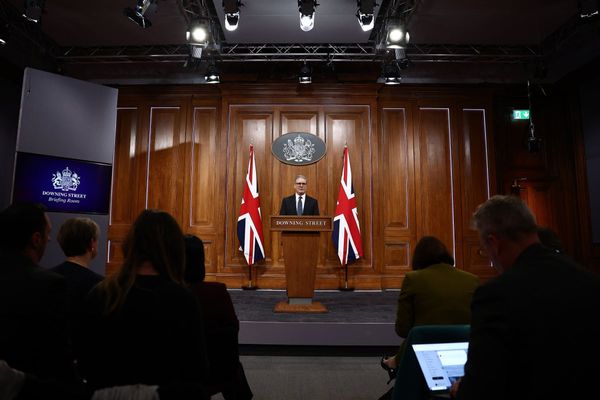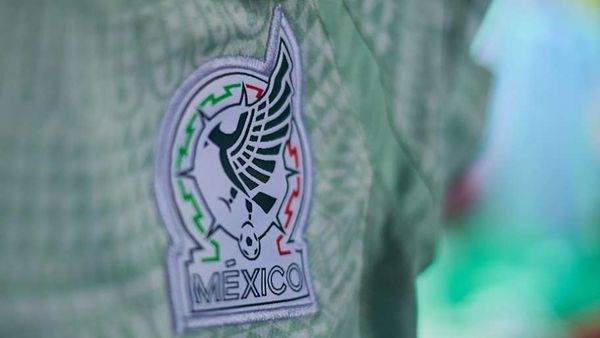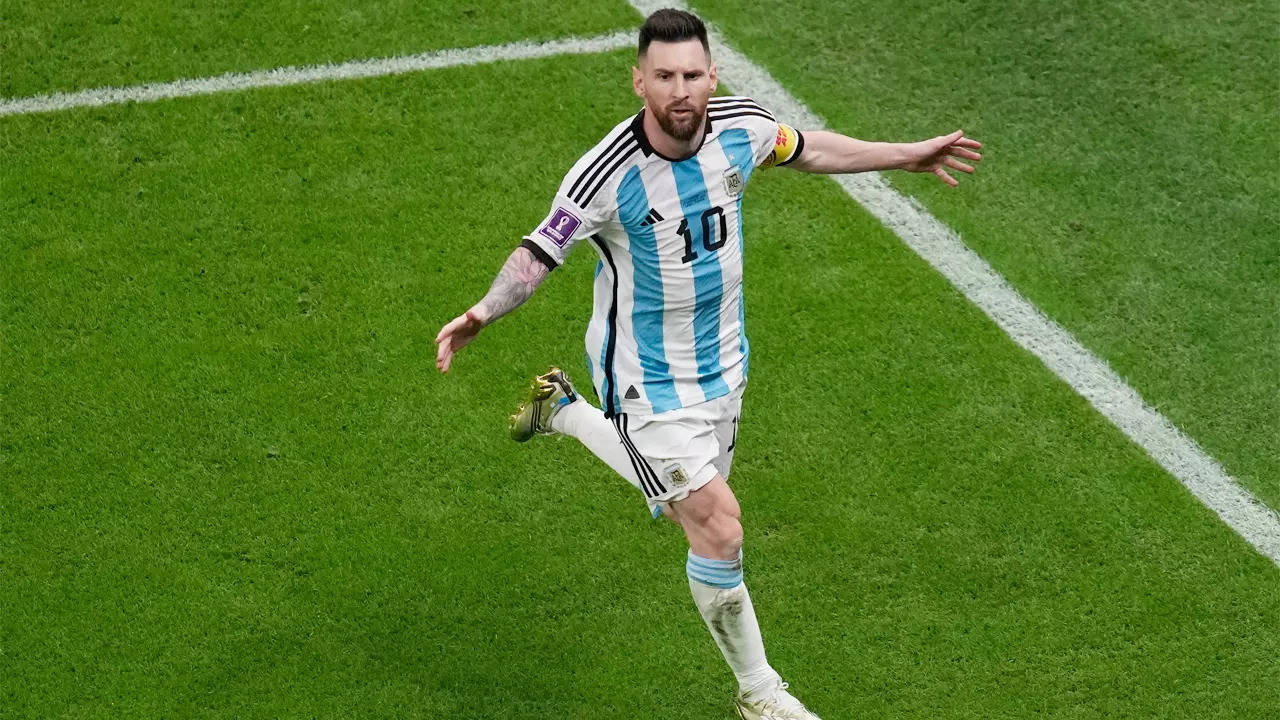
DOHA: "After the game is before the game." When Sepp Herberger, counted as among football’s earliest philosophers, first uttered this strange truism of the game, he would never have thought it would ring so true ahead of a World Cup final nearly seven decades later.
Add to that Lionel Scaloni's calm observation of the bedlam that followed Argentina's opening game loss to Saudi Arabia here, and you have two schools of thought going head to head into a thrilling finale. "It's hard to make people understand that the sun will rise tomorrow, win or lose." Scaloni would appeal for sanity in his typical restrained manner as chaos would reign, obits would be written, departure plans brought forward as another false dawn of Messi's shot at World Cup immortality would so quickly loom over the World Cup.
On Friday, match-day minus two, as is in FIFA-speak, the Saudi reverse seems distant memory but Herberger's observation - the 1954 World Cup-winning West German manager, was essentially speaking of the need to retain focus as one match ended and another would soon begin - seems have gained fresh traction and higher meaning. All talk that will follow Sunday's final is already being discussed ad nauseam before it. Will Messi equal Maradona? In equalling him, will he actually be outdoing him? Does he need a World Cup title to completely fool-proof his footballing immortality? What do the hungry Argentinians want? What does Messi want? Doesn't he have everything? We don't even have an Argentina jersey, they're the fastest moving commodity here in Qatar, apparently, they've been sold out worldwide too.
Oh, the French are there too. Sacre Bleu! There's that fantastic touchline prowler they have, some Mbappe or something…
Questions, questions, questions. Then as they rage, there are those streaks of coincidences, the myriad connections, those six degrees of footballing separations that light up our mundane lives as we wait for Sunday. The newsreels that are Argentina goals here at Qatar, are invariably linked to the ones they got at Mexico '86, the similarities pointed out with nit-picking care. If that's not all, some wise guy pointed out that the year Ronaldinho signed for Paris Saint Germain, Brazil won the 2002 World Cup, the year Mbappe signed for PSG, France won the World Cup. Guess which club did Messi sign for, ahead of this World Cup year?
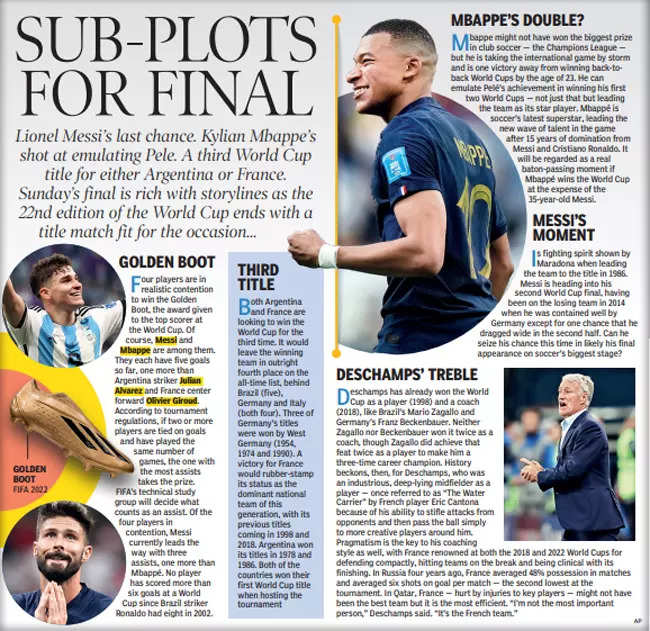
Even that's nothing. There was a huge sigh of relief when it was revealed that Argentina would sport their primary colours - blue and white shirts, black shorts and white socks for Sunday's final, the same colours they wore when they won in 1978 and 1986. Still, what took the cake and the entire bakery was the strangest observation that the referee for Sunday's final, the Polish Szymon Marciniak of shares his birthday - Jan 7 - with, guess who? A certain Brazilian called Romualdo Arppi Filho. So? Nothing, just that Senhor Filho officiated the 1986 final in Mexico's fabled Azteca. Guess, who won that one?
An answer-seeking, order-restoring world then turned to those who had some clue. The Argentinian greats who know of Maradonismo, that unique, never-dying, always-bright spectre of the man, from the day they take their first baby steps, to this once flea-like now crazy, wise chameleon of a genius footballer and his Messianic presence in their everyday lives, would pause and let us in into their strangely privileged world.
"Messi is a great player," Javier Zanetti would tell us something we didn't know. "I think he's on par with Diego. I think many people want Messi to win because of what he represents in the world and because of the way he interprets football," he would sagely offer, "Leo deserves it."
Then, from the sidelines of the Legends Cup here, the forever slick-haired Zanetti would tell us deep stuff. "He's playing a World Cup at Messi level, not 'Maradonian,'" Zanetti would say, then reminds us, "Leo is on the same level as Diego, on par. And this judgment will not change depending on the outcome of the final."
The calm, Scaloni-like Argentine in Zanetti would come to the fore. "As a people we have had many illusions with the national team, with a very concentrated Messi, in the role of leader. At his age and with his maturity he is making a difference, on and off the field," he would say.
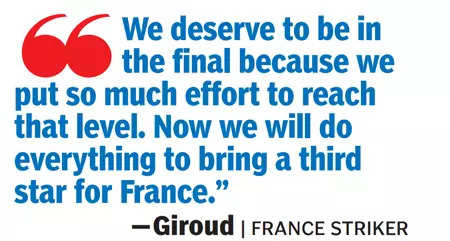
Maxi Rodriguez, a former teammate of Messi's from the 2006 World Cup, here as an Argentina federation delegate, observed the change in Messi's leadership as fundamental. "He always had it. Leo is a leader and as a player we can't tell him anything. And at the age that he is in and continues doing the things he does in a World Cup, we are going to miss him when he is no longer there."
On the meaning of the national team in Argentina's culture, the ex-Argentina midfielder would say, "It represents pride. I am very proud simply for the sacrifice they are giving. You know what it's like to be on that side and recognize the value of what they are doing."
Pablo Zabaleyta, a defender who played with Messi in 2006, 2010 and 2014, was asked of Messi's high levels. "He knows that it's his last chance, his last World Cup. Being the captain of the team, having always been the best, he is now the leader of this new generation showing the way and armed with a personal challenge to win the trophy. See, he's a winner, a genius and they have that mentality that they always want to win," he said.
But what has thrilled the former teammate most is the aggression that Messi shows as a leader. "I like to see him angry," Zabaleyta would notice, "He leads the team in a way that I love, he's very participative in many issues. Earlier, perhaps we would see it to a lesser extent. Now he is being more of a leader than ever."



